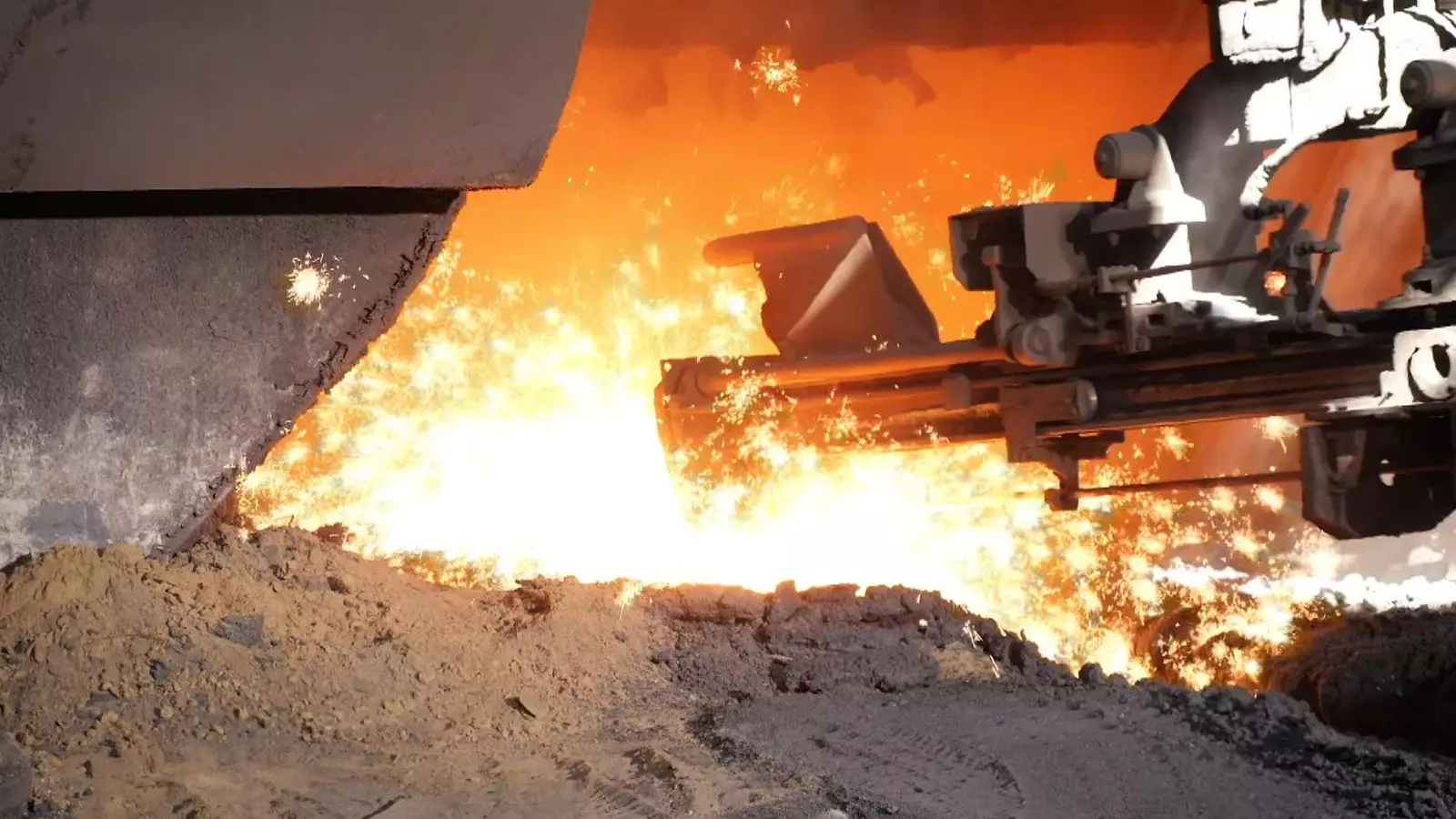In an era where the very foundations of national infrastructure rest on materials that are either dwindling or in jeopardy, the recent developments surrounding Britain’s steel industry send shivers down the spine of every concerned citizen. The impending closure of the last few operating blast furnaces, owned by Chinese conglomerate Jingye, marks not just an economic tragedy but a dire signal of how intertwined the fate of a nation is with its industrial capabilities. The announcement that Jingye has ceased future orders for the vital ingredients necessary to maintain these furnaces conveys a grave urgency. When raw materials such as iron ore and coal become inaccessible, we are not merely witnessing a corporate decision; we are witnessing the unraveling of a sector that has been essential for Britain’s industrial legacy.
This isn’t just a business strategy failure; it’s a matter that shapes our national sovereignty. The steel produced in Scunthorpe is not an ordinary commodity. It is foundational to our railway infrastructure and is integral for construction projects across the country. Importing steel from foreign sources introduces risks that extend beyond economics and into the realm of security. It makes us vulnerable to geopolitical shifts. To rely on external nations for what should be a sturdy internal foundation is a failure we cannot afford.
The Disillusionment of Government Action
When the news broke that Jingye had walked away from negotiations over a public funds offer aimed at transitioning to sustainable electric arc furnaces, it left many pondering the competency of the political establishment. A £500 million investment designed to modernize Scunthorpe’s steel production, which was deemed unacceptable by the owners, speaks volumes about the precarious position of the British steel industry. It’s not merely a dispute over money; it’s a stark reflection of a government that appears increasingly impotent in wielding its influence over multinational interests.
Nationalization has been floated as a potential solution, yet the hesitance to engage in bold maneuvers stems from a fear of financial repercussions for taxpayers. This indecision illuminates a broader malaise within politics. Effective governance should not shy away from making challenging choices when the stakes involve the very capability of a nation to sustain itself.
The government is navigating a political minefield with trade wars looming, particularly with the United States under the erratic behavior of leadership that treats alliances as expendable resources. Are we truly prepared to gamble our manufacturing for the sake of foreign investments, especially at a time when calls for shielding our industries are growing louder?
Environmental Concerns versus Economic Necessity
The argument for transitioning to electric arc furnaces, which have a lower carbon footprint, introduces an added layer of complexity to the crisis. On one hand, we have climate commitments that demand sustainable practices; on the other, we face immediate imperatives to preserve a crucial sector of our economy. The double-edged sword of environmental responsibility versus economic necessity makes the current landscape exceptionally challenging.
However, the situation should not be interpreted as a simple dilemma of prioritizing one goal over the other. There is potential for innovative solutions that blend economic resilience with environmental responsibility. By investing in sustainable technologies now, we can ensure that future generations inherit not only a robust economy but also a healthier planet. This dual focus could involve collaborating with private entities in a manner that doesn’t abandon the steelworks but rather elevates them into a new era.
Yet this requires decisive, bold leadership. Leadership that is willing to confront the harsh realities of a globalized economy while battling the climate crisis. The failure to act swiftly on this front could not only result in diminished industrial capabilities but also tarnish our international standing in the quest for environmental justice.
The Path Forward: A Call for Action
What we need now is not just dialogue but an actionable plan that unites all stakeholders—government, industry players, and the workforce. Proactive measures should not simply regard the short-term view of profit margins but instead look to a holistic strategy for transforming our industrial landscape. Crafting policies that accommodate both sustainability and economic stability is not an unattainable goal but a necessary obligation.
The impending closure at Scunthorpe may be just a prelude to the much larger implications for Britain’s future. The clock is ticking, and the decisions we make today will resonate for decades to come. The erosion of our domestic steel production can become a stark reminder of our inability to safeguard our nation’s industrial sovereignty. The urge for self-sufficiency in critical supply chains cannot be underplayed; it is imperative. We must act now, not only to salvage what we have left but to invest wisely in a future that prioritizes sustainability alongside economic vigor.


Leave a Reply